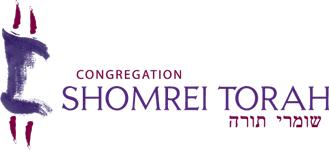Bang, bang, bang. It was the day after Yom Kippur in Jerusalem and people were already outside and dressed, constructing their sukkahs. The echoes of construction were even more penetrating than the sounding of the shofars only weeks before. In a city made of stone, sounds carry and
reverberate in every direction.
It took my friend and me a few moments to identify the strange banging, which continued for days, and to piece together the holiday connection. When else would I ever be living in the majority, where the sounds of Sukkot could clearly be heard? This would be a
Sukkot never to be forgotten.
In Israel, most restaurants construct temporary sukkahs for their customers to eat in during the week, since their only other option is to close. People are friendly and inviting during this week, reminiscent of the December spirit in America. It is common for families to invite neighbors into their sukkah for a meal, estranged families t0 gather and reconcile and businesses and schools to throw parties in the sukkah, with food, music, thankfulness and celebration.
In addition to eating in the sukkah, we are expected to leave
the comforts of our secure homes and sleep in the sukkah. During the
forty years the Israelites wandered in the wilderness, God took care of them.
They needn’t worry about food, or even shelter. God provided protective “clouds
of glory” that sheltered the Israelites from any harm before entering into the
Promised Land. The mitzvah of dwelling in a sukkah is our way of
remembering Gods kindness and reaffirming our faith.
Other symbols of Sukkot are the etrog and lulav, always purchased with great care and delicacy. In Israel, people are often found scrutinizing the etrogim (plural of etrog) with a magnifying glasses to ensure that the pitom (pistil) is in perfect condition. Unlike in the US, where most etrogs from specific vendors are priced the same, in Israel, the condition, size and smell of these amazing fruits determine their own worth.
Since the etrog tree produces fruit all year long and its pitom does not
immediately fall off, this fruit has become a symbol of fertility. In fact, some
families struggling with fertility spend extra money on a beautiful
etrog.
As Sukkot approaches, let us celebrate this
holiday that connects us to nature, our ancestors, Israel and our faith with
excitement.
B’shalom
Rabbi Stephanie Kramer
